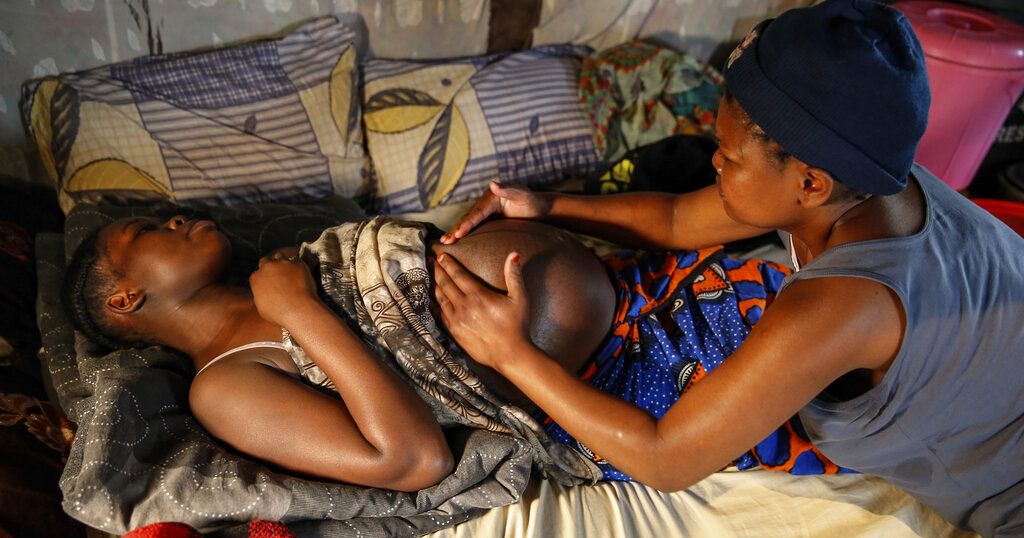Maternal Health Boost: Portable Ultrasound Devices Transforming Pregnancy Care in Kenya’s Rural Villages
In a groundbreaking move, portable ultrasound devices are revolutionizing maternal healthcare in Kenya’s rural villages, allowing for earlier identification of pregnancy complications and improved pregnancy outcomes. The innovative technology is bridging the healthcare gap in remote areas, where access to quality healthcare is limited.
Namunyak Tajiri, a 37-year-old mother of nine, is one of the many women who have benefited from the UNFPA’s mobile ultrasound program. Pregnant with twins, she is feeling more optimistic this time around, thanks to the use of portable ultrasound devices. “I have more hope for a better outcome this time,” she says, reflecting on her previous pregnancies, which faced numerous challenges, including the loss of one of her twins.
The UNFPA’s mobile ultrasound program, launched in November 2020, has trained many midwives and screened over 2,500 women in Kajiado, Migori, Homabay, and Kisii counties. The devices are offered for free, allowing midwives to spot pregnancy complications early and significantly reducing the risk of maternal and infant deaths.
Dorothy Kwamboka, a nurse at Namanga Health Centre, laments the challenges faced by women in accessing healthcare services. “We have women who come from very far, so transport is a big issue. It forces us to go with the portable machine there, even though sometimes we can’t do many (scans) due to electricity problems or financial constraints.” However, she notes that community health volunteers have played a key role in changing perceptions among pregnant women.
Pilar Molina, who specializes in Sexual and Reproductive Health and serves as the UNFPA Deputy Representative for Kenya, stresses the critical issues of adolescent pregnancy and child marriage, which contribute to Africa’s struggle to meet maternal mortality targets. However, she highlights the benefits of introducing new technology, which can detect complications in high-risk pregnancies and facilitate timely referrals and necessary care.
The portable ultrasound devices have greatly improved midwifery services, allowing midwives to reach remote areas and deliver critical care to women who live far from medical centers. The devices can perform up to three scans per day when staffed adequately, providing valuable insights into fetal positions, placenta health, and potential complications. Pregnant women are also educated on the importance of prenatal care, empowering them to make informed decisions about their health and well-being.
According to the UNFPA, in Kenya, 355 women die from pregnancy-related causes for every 100,000 live births, resulting in approximately 5,000 women and girls losing their lives each year. The introduction of portable ultrasound technology is a vital step in reducing this alarming mortality rate.
As the world struggles to meet maternal mortality targets, Kenya is taking a crucial step forward, leveraging technology to improve pregnancy outcomes in rural regions. The success of the UNFPA’s mobile ultrasound program offers new hope for marginalized populations, ensuring that expectant mothers like Namunyak Tajiri can receive the care they need to bring healthy babies into the world.








